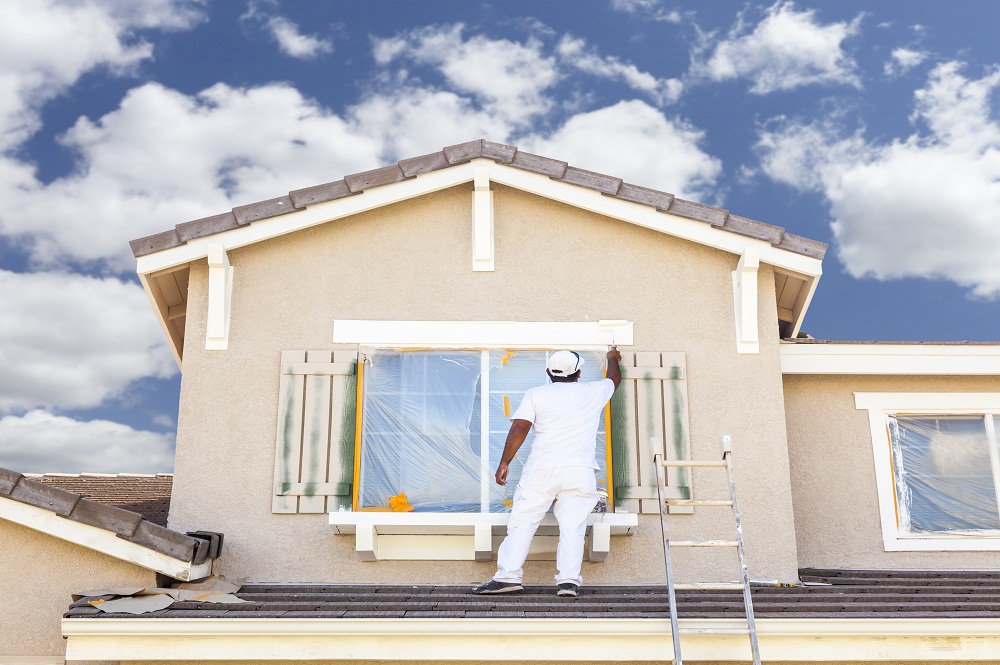Your home’s curb appeal is the property equivalent of a first impression. It’s important to your property value and the way others perceive your residence. A huge component of your home’s curb appeal depends on the paint applied to your home’s exterior. Even a well-designed, structurally sound home isn’t as appealing to look at if the paint is old, degraded, or outdated, which is why homeowners routinely elect to hire paint contractors in Canton, GA, to apply fresh exterior paint to their houses.
Painting your home’s exterior does involve a considerable investment, so it’s natural for homeowners to wonder how long they can reasonably expect their new paint job to last. What’s the average life span of exterior paint? The answer is that there is no definitive answer because the life expectancy of your paint depends largely upon many factors. Keep reading to learn more about how long you can expect your paint to last and what factors can affect its longevity.
UV Light
Few forces can degrade the condition of your exterior paint more than prolonged exposure to ultraviolet, or UV, light. UV light is a powerful force that attacks the paint on your home and initiates several detrimental changes that can dramatically impact the service life of your paint. UV light exposure is responsible for paint damage and blemishes, such as chalking, fading, and cracking. Though some varieties of paint contain additional additives to help slow the wearing effect of UV light, there’s no way to conquer it completely. If you live in an area with blazing sunlight more days than not, you could see the life span of your paint shortened substantially by UV damage. On concrete or stucco, good quality exterior paint can last up to 10 years, but on wood surfaces, exterior paint may only last 5 to 7 years.
Paint Quality
The quality and associated price of paint can vary widely from brand to brand and line to line. That wide disparity in cost isn’t arbitrary, however, because more expensive paints often have additives that can help slow down the effects of time and the elements to preserve color, finish, and condition for longer. Budget-priced paints may have fewer of those additives that help the paint adhere tightly to the surface and hold their color. That can lead to premature wear that isn’t observed in higher-quality paints. If you buy bargain paints, just know that the life span will be shorter than if you invest in high-quality products.
Surface Preparation
One of the most important factors in getting the maximum life span from your exterior paint is proper surface prep before the painting begins. Exterior surface preparation includes cleaning or pressure washing, removing old paint, sanding or smoothing, caulking seams and joints, replacing damaged wood, and priming of the surfaces. While it seems like a lot of extra work, each step plays a role in guaranteeing the desired result in terms of appearance and setting the stage for a long-lasting coat of paint on your home. Surface prep, or a lack of it, can result in a 2- to 3-year variance in the life span of your paint.
Painter Skill
Another important factor in the exterior paint longevity equation is the skill of the painter. First, a painting pro is more likely to implement the proper surface preparation before painting, which will extend the service life of your paint. Also, skilled painters won’t skimp on the paint application and will advise you if you need extra coats to ensure longevity. A talented professional painter is also more likely to apply the paint smoothly with great attention to detail, which can prevent the kinds of oversights that can lead to future issues with wood rot and paint damage.
With the proper preparations, paint quality, and personnel, exterior paint can last for years without degrading from exposure to the elements. While there are some rules of thumb that can give you an idea of the average life expectancy of your paint, you can only get the maximum life span by adhering to the rules above. If you’re in need of exterior painting in Canton, GA, contact Fillo Painting at (770) 637-6302.

